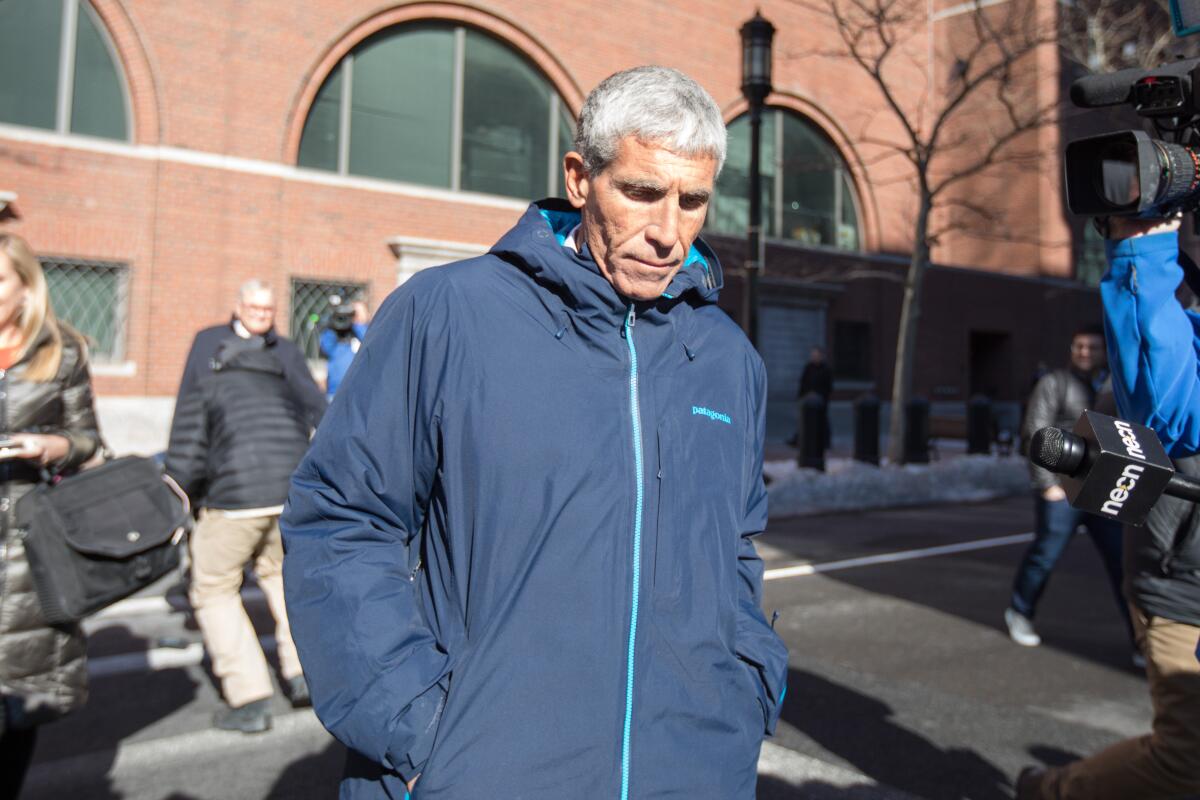Apodaca: College admissions remain unfair to many deserving applicants

Remember Operation Varsity Blues?
The college admissions scandal orchestrated by former Newport Beach resident Rick Singer seems far less outlandish today, five years after he pleaded guilty to helping rich parents cheat their kids into top-ranked universities through what he called a “side door.”
Not to downplay what Singer and his clients did. Indeed, the arrogance alone was breathtaking.
To recap, Singer pleaded guilty to racketeering conspiracy, money laundering and obstruction of justice charges for carrying out a scheme that involved facilitating bribes from wealthy parents to university coaches and admissions officials; paying substitute test-takers to boost scores for students, and even arranging staged photo sessions to help applicants submit fake sports accomplishments.
One particularly brazen detail: As part of the scheme parents funneled their payments through Singer’s sham charity, which allowed them to take tax write-offs.
About 50 people were ultimately charged, including coaches, testing administrators and some of Singer’s clients. The actors Felicity Huffman and Lori Laughlin were among those convicted. Apparently they believed that, for the rich, rules are only suggestions.
But as sordid as this case was, it did help shine a light on the entirety of the unfair and messed up college admissions game. Singer and his co-conspirators certainly deserved to face justice. If their actions no longer feel quite so shocking, it’s likely because they were always more of a symptom and not the rotted core of the disease itself.
Now Singer is back in the news. Out of federal prison and reportedly at a Southern California halfway house, he is once again a sought-after college admissions consultant. Because, well, of course he is. Makes perfect sense that a guy with a wonky ethical compass would still be in demand by parents with disposable income to spare and a burning desire to give their kids that extra edge on top of all the other advantages they enjoy.
Irony aside, Singer’s resurrected career provides a good opportunity to consider whether we’ve seen, in the years since his scams were exposed, any changes in a too easily compromised college admissions system.
The answer: There have been changes, both good and bad, but definitely not enough good.
As voters consider candidates for school board and other local office, their decisions could affect people on the margins in negative ways, writes Daily Pilot columnist Patrice Apodaca.
Some changes didn’t stick. During the pandemic, for instance, many universities dropped the requirement that applicants submit SAT or ACT scores. Critics have long argued that these standardized tests favor affluent students who can afford prep classes and private tutoring. The SAT has also been flagged in the past for alleged racial bias.
Now some schools are backtracking. They are reinstating the SAT/ACT requirement, contending that the tests can actually open doors for students of less resourced backgrounds. I’m not inclined to buy that rationale or that they’re unable to replace the tests with better measures of student achievement and potential. Nevertheless, it looks like expectations of the tests’ demise were premature, and they will continue to figure prominently in admissions.
A bigger and even more controversial issue — many universities’ longstanding preferential treatment for the children of donors, alumni and wealthy and well-connected potential donors — has at last come under greater scrutiny.
Unfortunately, the increased attention is largely due to the U.S. Supreme Court’s divisive ruling that barred consideration of race in college admissions. That decision is leading to a predictably negative outcome — less diverse student bodies — but it has also prompted an outcry over what many are calling “affirmative action for rich kids.”
A recent Los Angeles Times investigation revealed just how egregious such preferential treatment can get. It found that USC, which has a 9% undergraduate acceptance rate overall, has for years admitted 85% to 90% of applicants from highly privileged backgrounds. In many cases, the scales were tipped by manipulating the system meant for athletes, a system that is problematic in and of itself — but that’s a topic for another time.
The good news is that California passed a law set to take effect in September 2025 that will make it the fifth state in the nation to ban legacy admissions and only the second to extend that ban to private universities.
That’s a positive step that will hopefully curtail some of the practices that have compromised the integrity of our institutions of higher learning. Yet we’re still a long way from a transparent, equitable college admissions process, one isn’t tainted by cynical commercial motives.
Singer has admitted that the conspiracy he engineered was wrong but, in a telling bit of obtuseness, he maintains that it was a “victimless crime.”
Oh yeah? Tell that to all the well-deserving students — the ones that didn’t cheat, that came by their accomplishments honestly but narrowly missed out on spots at their favored universities. Explain it to the kids from underprivileged backgrounds who might have had a shot if the deck hadn’t been stacked against them from the beginning.
The reality remains that, when it comes to education, money rules. Some people have a lot of it. Universities want it. Their attempts to portray Operation Varsity Blues as a rogue operation involving a few bad apples obscures the bigger picture, which is that college admissions aren’t nearly as meritorious as we imagine or want them to be.
As long as that’s the case, I fear there could be other “side doors” — legal or otherwise — that will only open for a fortunate few.
All the latest on Orange County from Orange County.
Get our free TimesOC newsletter.
You may occasionally receive promotional content from the Daily Pilot.





